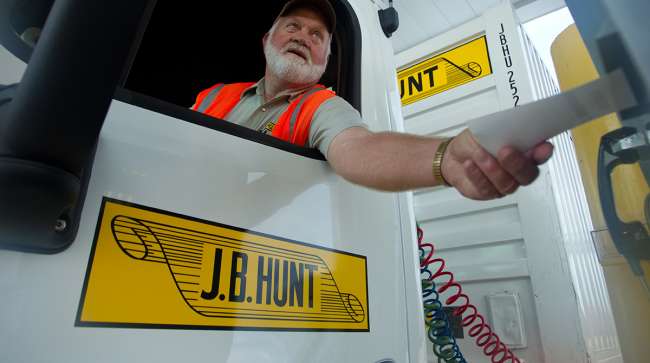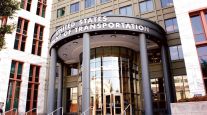Senior Reporter
J.B. Hunt Heads to High Court

J.B. Hunt Transport Inc. is asking the U.S. Supreme Court to exempt truckers from California’s law on meal and rest breaks and certain provisions of the state’s wage and labor law.
In a Feb. 5 petition for a writ of certiorari filed with the high court in connection with a driver class action lawsuit, Hunt said that California’s meal and rest break law is pre-empted by federal law because it has a “connection with a motor carrier’s prices, routes and services — and undermines maximum reliance on competitive market forces.”
Hunt also said that California’s labor and wage law prohibits employers from averaging the higher wages paid for high-value activities with the lower wages paid to the same employees for less efficient activities.
“To promote efficiency and compete with other motor carriers, J.B. Hunt compensates its drivers using an activity-based pay system rather than a pure hourly wage,” Hunt said. “The activity-based pay system pays drivers a rate per mile driven as well as other piece rates for specific nondriving activities, such as delivering a load of freight.”
In its petition, Hunt argued that the appeals court has erroneously extended a ruling in an earlier case to require motor carriers paying their employees a “piece rate” to compensate drivers separately for each hour worked, including nonproductive hours.
Hunt said that although the U.S. 9th Circuit Court of Appeals concluded that California’s prevailing wage law “in a certain sense” is related to [Hunt’s] prices, routes and services,” it added that “the effect is no more than indirect, remote and tenuous.”
The California meal and rest break law requires employers to provide employees who work more than five hours a day with a 30-minute meal break and those who work more than 10 hours with a second 30-minute meal break.
“Thus, the practical implication of the laws for truck drivers is that, for each meal or rest break, the driver must be able to deviate from his route at the appointed time, find a legal place to park, leave his truck for the required break and then return to his route,” the Hunt petition said.
“This case raises important questions regarding the scope of pre-emption under the Federal Aviation Administration Authorization Act,” Hunt said. “Twice in recent terms, this court has reversed the 9th Circuit’s narrow approach to pre-emption under the FAAAA and the closely related Airline Deregulation Act.”
The class action lawsuit, originally styled Gerardo Ortega et al v. J.B. Hunt Transport Inc., was initially filed in federal district court in California in 2007.




